
How Do I Know My Attorney SEO Campaign is Working?
At this point, you should have plenty of strategies at your disposal to build and improve your law firm SEO.
One final important step remains: you need to understand how to measure the success of your SEO efforts.
As you might expect, a complex process like this requires complex metrics to evaluate success. Still, you can use a few steps to successfully track the return-on-investment (ROI) of your efforts.
5 KPIs to Track Your Law Firm SEO Results
Let’s start with some core metrics that help you determine whether your SEO work is bringing in the traffic and conversions you need.
Most commonly, SEO experts track five key performance indicators (KPIs):
- Google rankings and click volume for relevant industry keywords
- Increase in organic web traffic
- Increase in website conversions from organic page visitors
- Increase in referral traffic and conversions
- Improvement in your local SEO presence
Let’s discuss each of these in more detail.
How to Track Your Keyword Ranking Improvements
Successful SEO lives and dies by the keywords for which you optimize. Tracking how well you’re performing on keywords that are relevant to your audience and legal niche is a core part of measuring SEO success.
Google Search Console
Google offers its own tool to help track this KPI in Google Search Console. Here, you can see exactly what searches bring users to your site, how you rank for those searches, and how those rankings are performing over time.
To get this info, login to your GSC account and:
- Click on “Performance” on the lefthand side,
- Click “Pages” below the line chart and find the page you want info on (usually your homepage),
- Click “Queries” and see the queries this page ranking for (in this case, you’ll want to find the queries that match your target keyword,
- Look at the right column under “Position” to see where you rank.
Pro Tip: Queries give you a better understanding of how people are finding your site. For “Los Angeles divorce lawyer”, you might also be getting traffic for “divorce lawyer Los Angeles”, “divorce lawyer”, “Los Angeles divorce attorney”, etc.
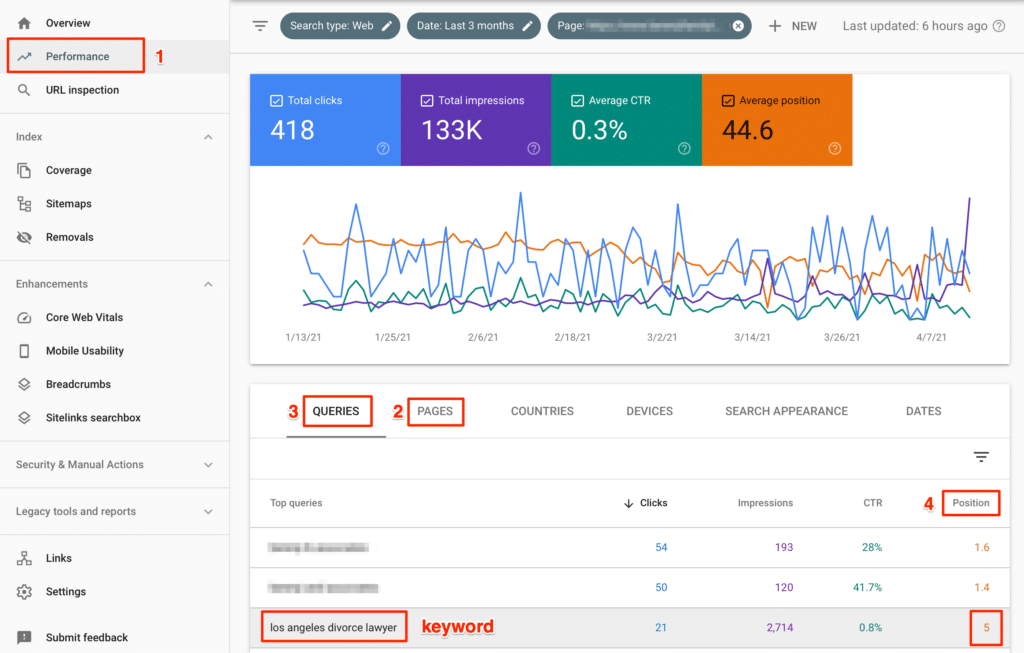
Of course, that’s not the only tool available. But unlike many of the advanced tools, it’s free and relatively easy to use. Regardless of the specific tool, the key here is honing in on your most relevant keywords.
Keep a close eye on how your content optimization efforts are performing as you continue to implement new strategies.
Pro Rank Tracker
Another tool you can use to track your rankings is Pro Rank Tracker (PRT).
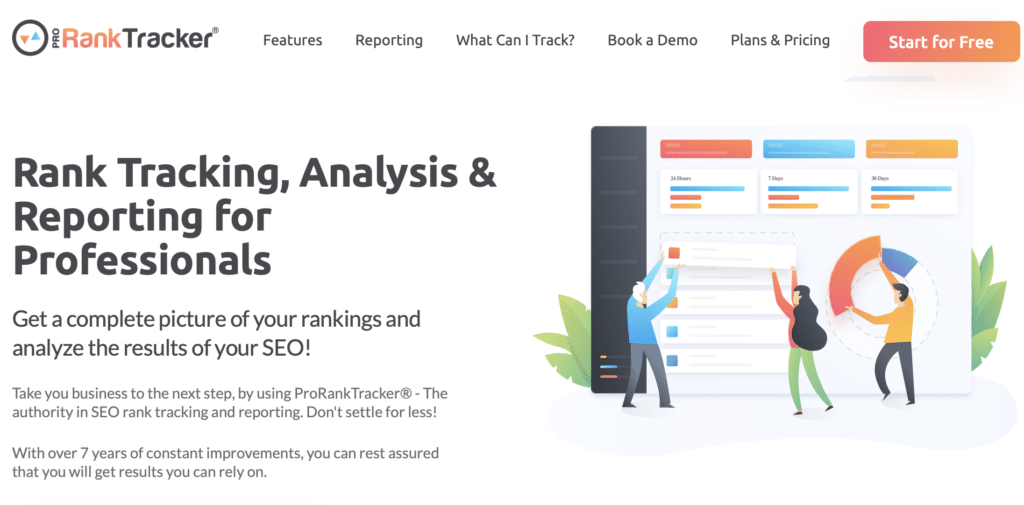
PRT is a paid tool that allows you to easily add the keywords you’re trying to rank for and track progress daily. A few benefits of PRT includes:
- Organic and local keyword tracking,
- Mobile app that allows you to check your rankings on your phone,
- Keyword search volume (make sure you’re tracking the keywords that matter).
How to Track Your Organic Web Traffic
Beyond your core keywords, your organic web traffic can tell you quite a bit about your SEO performance.
With the right tool, you can see exactly what keywords are landing users on your website, and how those users interact with you once they land there.
Looking at web traffic alone can bring some initial insights.
It gets truly valuable when you’re able to dig deeper:
- Do your website engagement statistics, like time on page, number of pages visited, and bounce rate change depending on the keyword?
- Do your users behave differently depending on their geographic location or demographic profile?
- Do specific keywords tend to land your users on landing pages that drive towards conversions? If not, where do they land?
You can get all of these insights through Google Analytics, which is free for website owners.
By tracking your organic web traffic, you’re able to determine not just the volume of visits to your site, but how you might be performing in the above-mentioned E-A-T criteria.
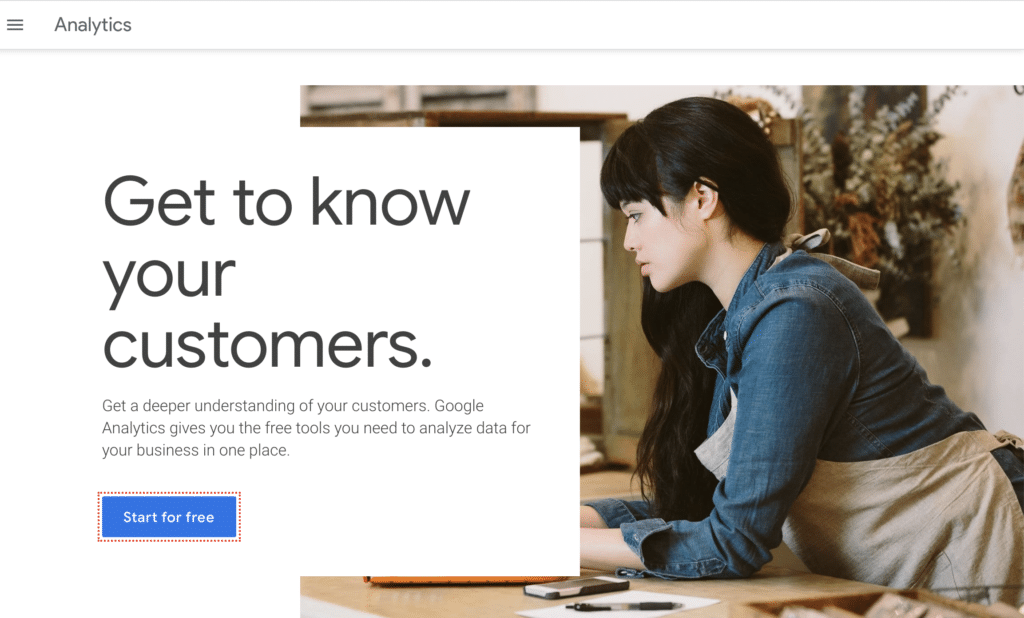
How to Track Your Web Conversions from Organic Page Visitors
This KPI takes organic traffic one step further. A law firm’s ultimate goal for web visitors is likely a conversion. This might take the form of a free consultation booked, newsletter sign up, or call with your office that lasts longer than 90 seconds.
Regardless of how you define your conversions, tracking their success allows you to measure how much your SEO truly impacts your client intake.
By setting up goals in Google Analytics, for instance, you can track conversions according to specific keywords, helping you understand just where your optimizations have begun to drive new clients.
How to Track Your Referral Traffic
Tracking your referral traffic helps you measure the impact of your link building and off-site SEO efforts such as paid social media ads. As you’ll remember, inbound links are vital in building site authority.
Your referral traffic will help you understand what is bringing visitors to your site and whether those visitors are turning into paying clients.
A guest post on a low-traffic industry site, for instance, may not bring in many visitors or conversions. A link in a high-profile legal directory, on the other hand, likely performs better.
The same tools mentioned for organic traffic above remain true for referral traffic.
You can understand a lot about your link building by learning what audiences, user behavior, and conversion rates a linking website might drive by using Google Analytics. The results can help you optimize your off-site SEO over time.
To see your referral traffic, login to your GA account and click on Acquisition, then All Traffic, and the Referrals.
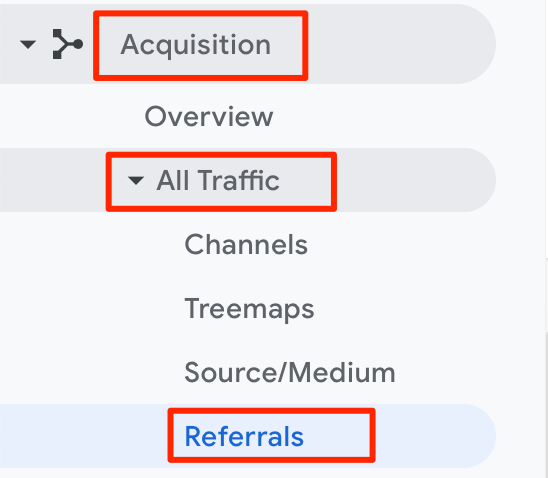
You’ll then see a table on the right that looks like what you see below. If you set up conversion goals, you can add those to this table to see what which referral sources lead to more conversions.

How To Track Your Local SEO Campaign
To track your Local SEO campaign, we recommend the following:
- Local Falcon, and
- CallRail
Local Falcon
Local Falcon (LF) is a local SEO tool gives you your local rankings.
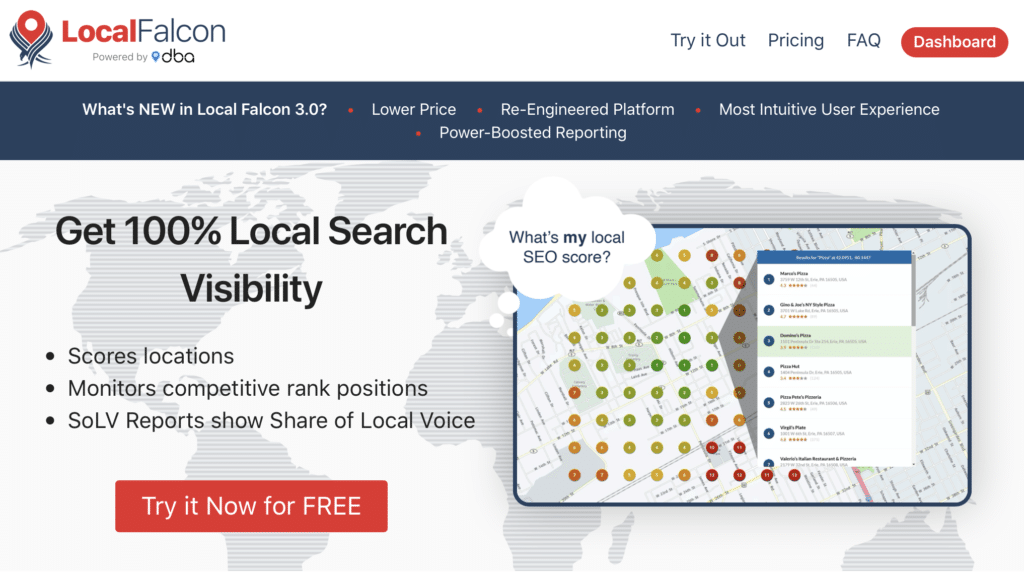
Here’s how it works. After you login to LF, you search for your business.
You then set a search radius around your office (we suggest a half mile to one mile). You then search using a keyword for which you’re trying to get clients and includes a local pack in the search results.
For example, a personal injury lawyer in Boston, MA might use the following keywords in LF:
- Boston personal injury lawyer
- personal injury lawyer
- personal injury lawyer near me
- Boston car accident lawyer
- car accident lawyer
- car accident lawyer near me
The result will look like the map below.
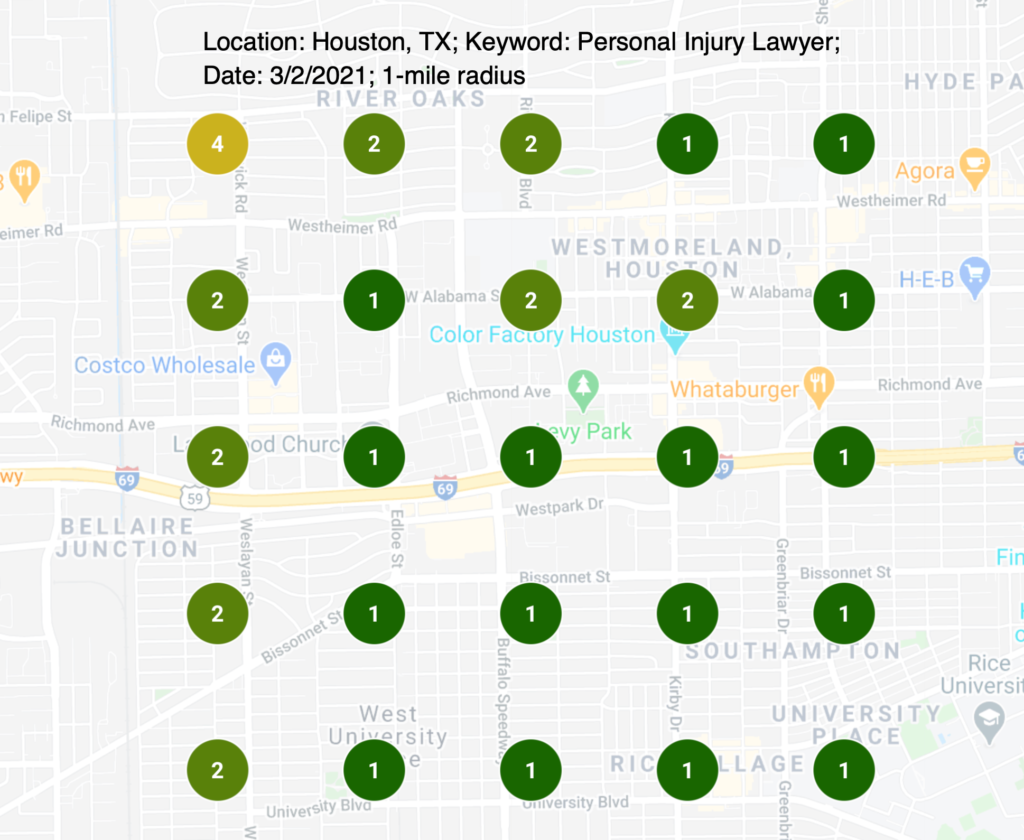
Pro Tip: LF has a great feature called your “Solv” score. This stands for share of local voice. Basically, the score refers to how many times you appear in the top 3 of the local pack.
The higher your Solv score, the local visibility your business as in your chosen radius.
CallRail
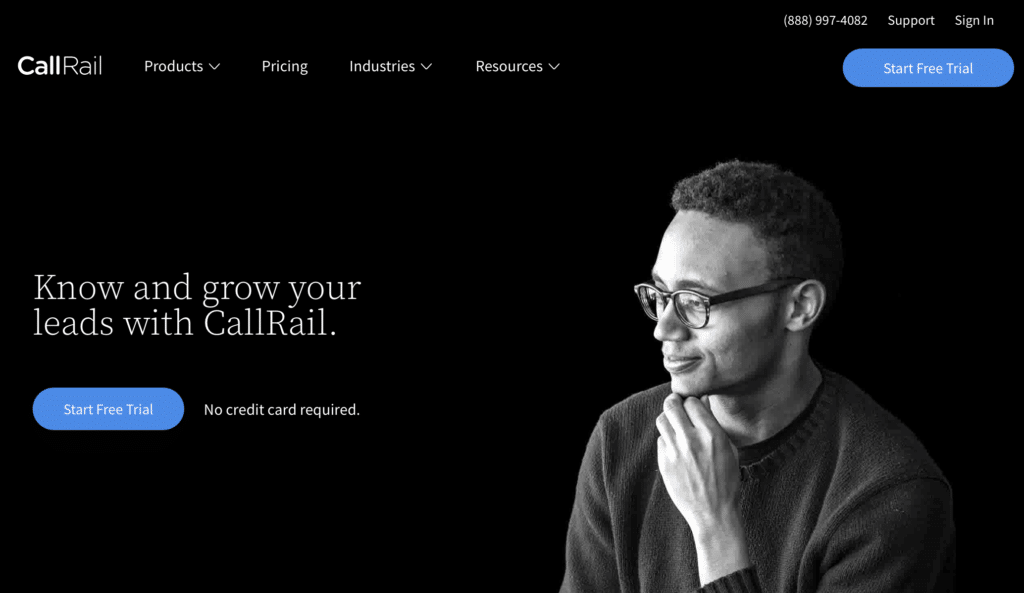
CallRail allows you to create tracking numbers. With a CallRail tracking number, you’ll be able to see how many calls you’re getting and additional valuable insight including:
- Call length,
- Caller number, name,
- Source of the call (SEO, PPC, directory, etc.)
You can create a tracking number specifically to be used with your GMB listing. This will help you understand if your local SEO efforts are resulting in an increased call volume and more signed cases.
Managing Expectations in Measuring Your Attorney SEO ROI
Finally, a note of caution. While all the above KPIs and measurement tactics are undoubtedly beneficial in measuring your Lawyer SEO ROI, you will not see improvements or results instantly.
Measuring expectations is vital for long-term, sustainable success. However, most experts estimate that it takes between six and twelve months to see measurable improvements to your SEO-related traffic and conversions.
The legal industry tends to be on the far end of that range, thanks to its competitiveness and the required library of content to rank on a given keyword.
Over time, search engine optimization remains crucial and may be the most important digital marketing tool at your disposal. But to get there takes time and effort.
Understanding that timeframe as you launch into a comprehensive marketing or personal injury lawyer SEO effort can go a long way toward remaining positive and driving towards your long-term goals.
Up Next: Attorney SEO FAQ
